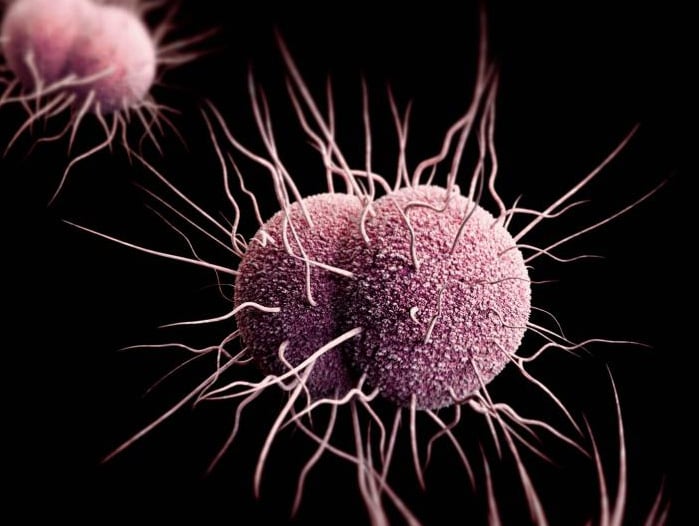Coordinated global action needed to address antimicrobial resistance and sexually transmitted infections
London School of Hygiene & Tropical Medicine https://lshtm.ac.uk/themes/custom/lshtm/images/lshtm-logo-black.png Monday 25 June 2018
Left untreated gonorrhoea can cause serious and permanent health problems in both women and men. Over many decades, Neisseria gonorrhoeae, the bacterium that causes gonorrhoea, has successively developed resistance to each class of antibiotics recommended for treatment and treatment options are becoming depleted - a worrying prospect given that an estimated 78 million people are infected with gonorrhoea each year globally.
In its Global Health Sector Strategy on STIs, the World Health Organization (WHO) highlighted that limited surveillance data have compromised the global response to combat gonorrhoea and other STIs, and set a milestone for 70% of countries to have STI surveillance systems in place by 2020 to enable the 2030 global targets to be monitored.
The need to improve surveillance of AMR in gonorrhoea was recently highlighted by the joint WHO/Drugs for Neglected Diseases Initiative. In addition to gonorrhoea, there is global concern about high levels of AMR in other STIs such as Mycoplasma genitalium and Treponema pallidum (syphilis). The global threat of AMR to the effective treatment and control of STIs requires the establishment of international multidisciplinary professional networks to promote collaboration, develop surveillance strategies and define priorities for innovative research programmes.
To this end, we have established a new international network called STI-Net, a collaborative network of public health and academic professionals from partner organisations in Europe (the UK and Sweden with support from the European Centre for Disease Prevention and Control) and Brazil (multiple states with support from the Ministry of Health,), focusing on research on AMR in STIs.
Funded by INCOBRA, part of the European Union’s Horizon 2020 Research and Innovation programme collaboration with Brazil, STI-Net aims to form an alliance between existing networks and additional partner organisations that will exchange expertise, support delivery of national surveillance programmes, and share innovations in healthcare pathways and scientific research focused on STIs and AMR.
STI-Net will provide a foundation for establishing a global surveillance network through partnership with other countries and international networks. The first STI-Net workshop was held at the University of São Paulo on the 24th and 25th May 2018. Common goals were established and knowledge was shared on topics such as digital innovations in STI service provision and public health surveillance, and whole genome sequencing in STI management and surveillance.
Discussions were lively and fruitful, with priorities for research and development funding in the coming year identified. A second workshop taking place at the end of July at the London School of Hygiene & Tropical Medicine aims to build on these successes.
Shortly after the UK case report in March, a further two extensively drug-resistant gonorrhoea cases were reported in Australia. Concerted and coordinated global action to address the risk of untreatable gonorrhoea and other STIs is clearly needed.
Our postgraduate taught courses provide health practitioners, clinicians, policy-makers, scientists and recent graduates with a world-class qualification in public and global health.
If you are coming to LSHTM to study a distance learning programme (PG Cert, PG Dip, MSc or individual modules) starting in 2024, you may be eligible for a 5% discount on your tuition fees.
These fee reduction schemes are available for a limited time only.